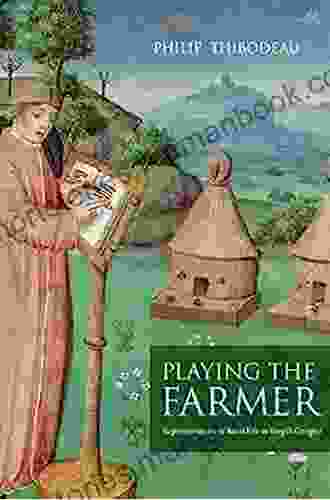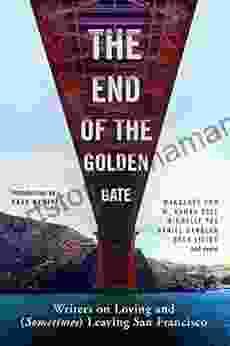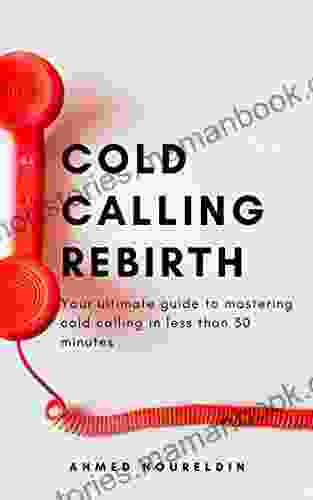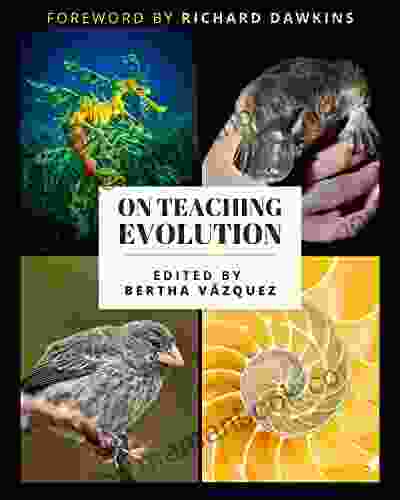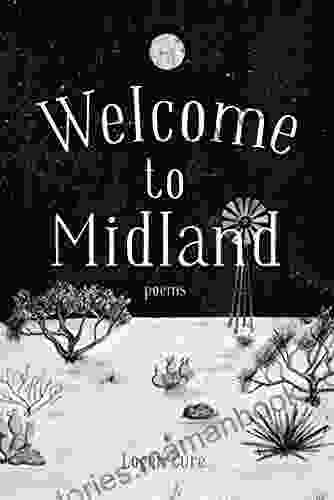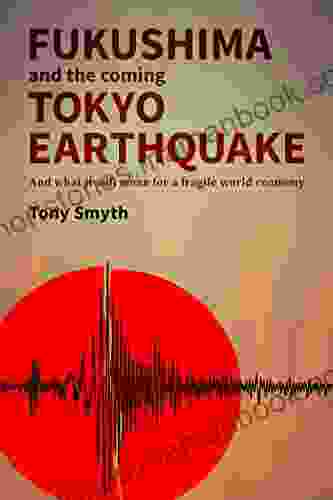Representations of Rural Life in Virgil's Georgics: An Exploration of Nature, Labor, and the Human Condition

5 out of 5
| Language | : | English |
| File size | : | 2209 KB |
| Text-to-Speech | : | Enabled |
| Enhanced typesetting | : | Enabled |
| Print length | : | 335 pages |
| Lending | : | Enabled |
| Screen Reader | : | Supported |
Virgil's Georgics, an epic didactic poem composed during the Augustan era of ancient Rome, offers a multifaceted and compelling portrayal of rural life. Through its four books, Virgil explores the beauty and challenges of the countryside, celebrating the rhythms of nature and the dignity of agricultural labor while also acknowledging the harsh realities faced by those who work the land. This article delves into the various representations of rural life in the Georgics, examining how Virgil's portrayal of nature, labor, and the human condition shapes our understanding of the poem and its enduring relevance.
The Idyllic Countryside
Virgil's Georgics frequently presents an idyllic vision of the countryside, portraying it as a place of peace, harmony, and abundance. In Book 2, he describes the ideal farm as "a little kingdom" where the owner enjoys a life of contentment and tranquility:
"Here is true happiness, if one but knows it, / To cultivate the fields, and tend the flocks"(Georgics 2.458-459)
Virgil's idyllic descriptions of nature contribute to this sense of rural bliss. He paints vivid pictures of lush meadows, sparkling streams, and gentle breezes, creating an almost Edenic atmosphere. In Book 1, he celebrates the beauty of spring, when "the earth grows green, and all things smile" (Georgics 1.43).
The Reality of Agricultural Labor
However, Virgil's Georgics does not merely present an idealized view of rural life. The poem also delves into the harsh realities faced by those who work the land. Virgil acknowledges the physical demands of farming, the constant threat of pests and disease, and the unpredictable nature of the weather. In Book 1, he warns farmers of the challenges they will face:
"But toil must be your lot, if you would reap / The harvest of the fields"(Georgics 1.145-146)
Virgil's realism extends to his portrayal of the human condition in rural life. He depicts the struggles of farmers to make a living, the poverty and hardship they often endure, and the social hierarchy that exists within rural communities. In Book 3, he describes the plight of the poor farmer:
"Hard is the life of peasants, and their lot / Is full of labor, and their mind of care"(Georgics 3.168-169)
Nature and the Human Condition
Virgil's Georgics explores the complex relationship between nature and the human condition. The poem suggests that nature is both a source of sustenance and a force that can be both benevolent and destructive. Virgil celebrates the bounty of nature, but he also acknowledges its power to inflict suffering and hardship.
This duality is reflected in Virgil's portrayal of the seasons. Spring and summer are times of growth and abundance, but autumn and winter bring cold, darkness, and the threat of starvation. In Book 1, Virgil describes the challenges faced by farmers during the winter months:
"Now furious winter's icy reign prevails, / And binds the earth, and clogs the air with hail"(Georgics 1.296-297)
Virgil's Georgics also explores the theme of human domination over nature. Through agriculture, humans seek to control and exploit the natural world for their own benefit. However, Virgil suggests that this domination is not without its consequences. In Book 2, he warns that the earth will eventually rebel against those who mistreat it:
"The earth will hide her fruits, and mock your toil, / And with rebellious thorns obstruct the soil"(Georgics 2.493-494)
Virgil's Georgics offers a rich and nuanced portrayal of rural life in ancient Rome. The poem celebrates the beauty and abundance of the countryside while also acknowledging the challenges and hardships faced by those who work the land. Through his exploration of nature, labor, and the human condition, Virgil invites us to reflect on our relationship with the natural world and our place within it.
The Georgics remains a timeless work of literature that continues to resonate with readers today. Its vivid descriptions of rural life, its insights into the human condition, and its enduring themes of nature, labor, and the human condition make it a valuable and enduring contribution to Western literature.
5 out of 5
| Language | : | English |
| File size | : | 2209 KB |
| Text-to-Speech | : | Enabled |
| Enhanced typesetting | : | Enabled |
| Print length | : | 335 pages |
| Lending | : | Enabled |
| Screen Reader | : | Supported |
Do you want to contribute by writing guest posts on this blog?
Please contact us and send us a resume of previous articles that you have written.
 Top Book
Top Book Novel
Novel Fiction
Fiction Nonfiction
Nonfiction Literature
Literature Paperback
Paperback Hardcover
Hardcover E-book
E-book Audiobook
Audiobook Bestseller
Bestseller Classic
Classic Mystery
Mystery Thriller
Thriller Romance
Romance Fantasy
Fantasy Science Fiction
Science Fiction Biography
Biography Memoir
Memoir Autobiography
Autobiography Poetry
Poetry Drama
Drama Historical Fiction
Historical Fiction Self-help
Self-help Young Adult
Young Adult Childrens Books
Childrens Books Graphic Novel
Graphic Novel Anthology
Anthology Series
Series Encyclopedia
Encyclopedia Reference
Reference Guidebook
Guidebook Textbook
Textbook Workbook
Workbook Journal
Journal Diary
Diary Manuscript
Manuscript Folio
Folio Pulp Fiction
Pulp Fiction Short Stories
Short Stories Fairy Tales
Fairy Tales Fables
Fables Mythology
Mythology Philosophy
Philosophy Religion
Religion Spirituality
Spirituality Essays
Essays Critique
Critique Commentary
Commentary Glossary
Glossary Bibliography
Bibliography Index
Index Table of Contents
Table of Contents Preface
Preface Introduction
Introduction Foreword
Foreword Afterword
Afterword Appendices
Appendices Annotations
Annotations Footnotes
Footnotes Epilogue
Epilogue Prologue
Prologue Katherine Woodward Thomas
Katherine Woodward Thomas Charles Dancla
Charles Dancla Frederick Rebsamen
Frederick Rebsamen Woo Myung
Woo Myung Rick Barnes
Rick Barnes J A Johnstone
J A Johnstone Andrew Marvell
Andrew Marvell Kim Vi Nguyen
Kim Vi Nguyen Anthony Doerr
Anthony Doerr Alvin Alexander
Alvin Alexander Mark Arax
Mark Arax Gil Baumgarten
Gil Baumgarten Rose Steele
Rose Steele Kay Ryan
Kay Ryan Maisie Thomas
Maisie Thomas Terri Morrison
Terri Morrison James Clemens
James Clemens William Lynwood Montell
William Lynwood Montell Keith Spence
Keith Spence J Rishi Dadhichi
J Rishi Dadhichi
Light bulbAdvertise smarter! Our strategic ad space ensures maximum exposure. Reserve your spot today!
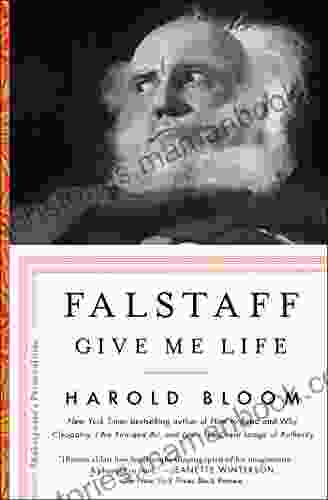
 Deion SimmonsFalstaff: Give Me Life - An Exploration of Shakespeare's Enduringly Popular...
Deion SimmonsFalstaff: Give Me Life - An Exploration of Shakespeare's Enduringly Popular...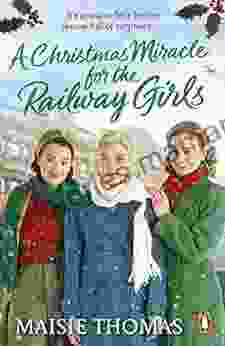
 Victor TurnerA Christmas Miracle for the Railway Girls: A Heartwarming Tale of Courage and...
Victor TurnerA Christmas Miracle for the Railway Girls: A Heartwarming Tale of Courage and... Patrick HayesFollow ·5.6k
Patrick HayesFollow ·5.6k Matt ReedFollow ·14.6k
Matt ReedFollow ·14.6k Ian McEwanFollow ·16.7k
Ian McEwanFollow ·16.7k Thomas MannFollow ·15k
Thomas MannFollow ·15k Stuart BlairFollow ·12.8k
Stuart BlairFollow ·12.8k Cody RussellFollow ·16.9k
Cody RussellFollow ·16.9k Maurice ParkerFollow ·12.7k
Maurice ParkerFollow ·12.7k Dillon HayesFollow ·15.2k
Dillon HayesFollow ·15.2k
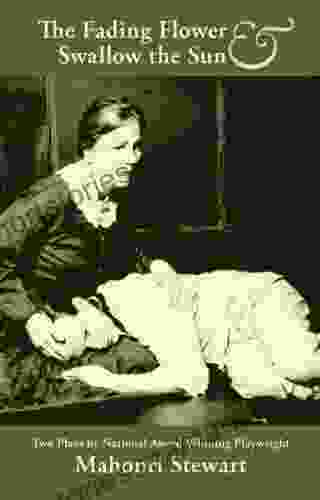
 Bob Cooper
Bob CooperThe Fading Flower and Swallowing the Sun: Unveiling the...
"The Fading Flower and...
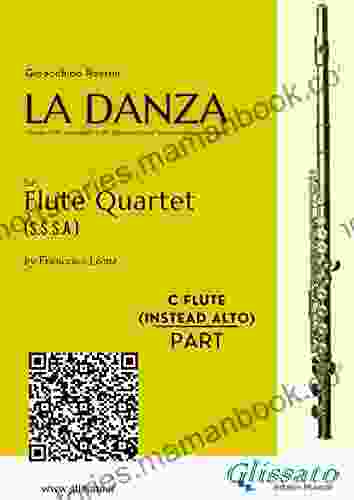
 Jesus Mitchell
Jesus MitchellLa Danza by Rossini: A Captivating Work for Flute Quartet
La Danza is a captivating composition for...

 Ivan Turgenev
Ivan TurgenevThe Never King: Vicious Lost Boys - A Dark and Twisted...
In the realm of Neverland, where shadows dance...
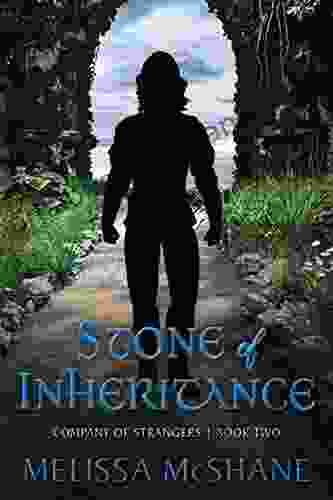
 Herb Simmons
Herb SimmonsThe Stone of Inheritance: Unraveling the Mysteries of a...
A Legacy of Enigmas In the annals of history,...
5 out of 5
| Language | : | English |
| File size | : | 2209 KB |
| Text-to-Speech | : | Enabled |
| Enhanced typesetting | : | Enabled |
| Print length | : | 335 pages |
| Lending | : | Enabled |
| Screen Reader | : | Supported |


